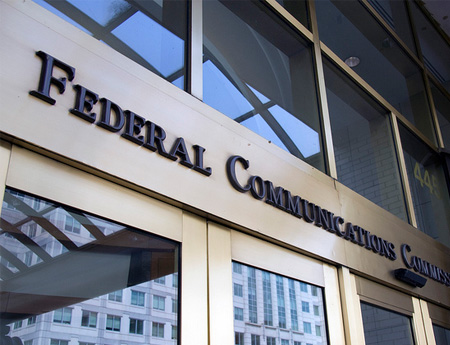FCC Votes to Eliminate Sports Blackout Rules

The smarter way to stay on top of broadcasting and cable industry. Sign up below
You are now subscribed
Your newsletter sign-up was successful
The FCC has unanimously voted to get rid of its sports blackout rules, which had been a backstop to NFL blackout policies.
The commissioners said the rules were outdated, and many made the point that the government should not be complicit in the NFL's decision to black out broadcasts for games with insufficient ticket sales.
The item getting rid of the rules concludes that the NFL is unlikely to move games from broadcast TV to pay, as the league suggested could happen if the rules were eliminated.
The sports blackout rules prevent cable operators and others from providing those games to subscribers in markets where the local broadcast is blacked out.
The NFL can continue to enforce those blackouts in contracts with broadcasters and MVPDs, FCC chairman Tom Wheeler pointed out, but not with the imprimatur of the FCC. If there are blackouts next week, he said, it will be on the league and its owners, "without the participation of the federal government."
Wheeler gave a nod to then chairwoman Mignon Clyburn for dusting off the 40-year-old rule and teeing up the initial vote last fall tentatively concluding the rules should go.
Wheeler also called on the NFL to repudiate blackouts.
The smarter way to stay on top of broadcasting and cable industry. Sign up below
As to the threat of the NFL moving games off of broadcast, commissioner Ajit Pai was not buying it.
"To begin with, there is no way that this can happen anytime soon," he said. "The NFL’s contracts with over-the-air broadcasters extend until 2022."
"But more importantly, by moving games to pay TV, the NFL would be cutting off its nose to spite its face," he said. "Television contracts—not gate receipts—make up a substantial majority of the NFL’s revenues nowadays. And professional football is, by far, America’s most popular sport in part because it is the only major sport that makes most games available on free, over-the-air television."
“We commend the Commission’s unanimous decision to eliminate the antiquated sports blackout rule," said the National Cable & Telecommunications Association in a statement. "As the video marketplace continues to evolve and offers consumers more competition and a growing variety of new services, we encourage the FCC to continue its examination of outdated rules that no longer make sense.”
Clyburn used her opening statement to signal some apparent disaffection with the Redskins' name. She referred to the "Washington football team," which has become the name critics choose for referencing the team, and noted the team had resisted calls to change a name some found offensive.
“This is a historic day for sports fans,” said David Goodfriend, chairman of Sports Fans Coalition, which had pushed for eliminating the ban. “Since 1975, the federal government has propped up the NFL’s obnoxious practice of blacking out a game from local TV if the stadium did not sell out. Today’s FCC action makes clear: if leagues want to mistreat fans, they will have to do so without Uncle Sam’s help.”
“NFL teams have made significant efforts in recent years to minimize blackouts. The NFL is the only sports league that televises every one of its games on free, over-the-air television,” the league said in a statement. “The FCC’s decision will not change that commitment for the foreseeable future.”
FCC Media Bureau Chief Bill Lake said it would take about six weeks for the sports blackout rules to come off the books, which is 30 days after the FCC decision is published in the Federal Register, which itself takes a couple of weeks.
The National Association of Broadcasters, which supported the rules, had no comment.
Contributing editor John Eggerton has been an editor and/or writer on media regulation, legislation and policy for over four decades, including covering the FCC, FTC, Congress, the major media trade associations, and the federal courts. In addition to Multichannel News and Broadcasting + Cable, his work has appeared in Radio World, TV Technology, TV Fax, This Week in Consumer Electronics, Variety and the Encyclopedia Britannica.

